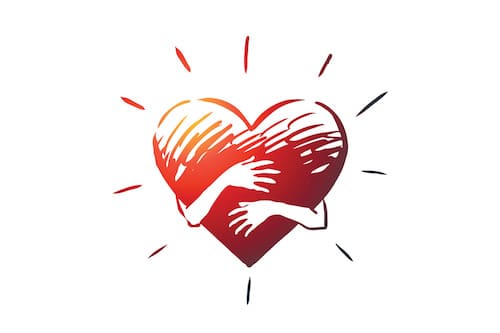September 18, 2019
By Valéry Brosseau
If you or someone you know is experiencing a mental health, suicide or substance use crisis or emotional distress, reach out 24/7 to the 988 Suicide and Crisis Lifeline (formerly known as the National Suicide Prevention Lifeline) by dialing or texting 988 or using chat services at 988lifeline.org to connect to a trained crisis counselor. You can also get crisis text support via the Crisis Text Line by texting NAMI to 741741.
 I volunteer with an organization that allows me to speak in high schools and tell the students my story of mental illness, suicide attempts and recovery. Recently, I was able to speak at a parent night where the parents could hear exactly what we share with the students. It was followed by a question period. The first question was from a gentleman sitting near the front. He shared that someone close to him had died by suicide, and he and his family were struggling with the guilt and pain of this trauma. He then asked me if he could have seen warning signs, or if he should have done anything differently.
I volunteer with an organization that allows me to speak in high schools and tell the students my story of mental illness, suicide attempts and recovery. Recently, I was able to speak at a parent night where the parents could hear exactly what we share with the students. It was followed by a question period. The first question was from a gentleman sitting near the front. He shared that someone close to him had died by suicide, and he and his family were struggling with the guilt and pain of this trauma. He then asked me if he could have seen warning signs, or if he should have done anything differently.
Wow.
Tough question.
How do you tell someone how they could have prevented a suicide? How do you begin to help them make sense of the complex emotions that come with this event? As always, my first response was to focus on empathy and support. I thanked him for trusting us with this information, for making himself vulnerable and sharing the most intricate part of his pain for everyone to hear. I expressed that warning signs present differently for everybody and to focus on self-compassion.
Self-compassion is a key part of the part of the grieving process and the healing process. SleYou need self-compassion to let go of the guilt, face the pain and learn how to cope.
Suicide sometimes comes with warning signs. However, the signs look different for everybody, some even being contrary to each other, depending on the person. Here are some things to keep in mind when you are concerned about someone and want to offer support:
High Risk Warning Signs
Other Warning Signs
While supporting people on my organization’s crisis helpline, we are trained to ask directly about suicidal intent when we hear phrases such as the following:
While these signs may help you determine when to offer additional support to someone or check-in on their safety, it is important to note that warning signs are unique to each person. And some people show very few warning signs at all.
For those experiencing the suicide loss, it is imperative to support yourself and care for your mental health. Guilt is a normal part of the grieving process but remember that it is never your fault. Anger may also be part of the grieving process: anger at your loved one for leaving you, and further guilt at feeling this anger. Suicide is a loss like no other and comes with an extremely complex grieving process.
Part of that complexity comes from the illusion of control: the belief that we had much more control over the situation than we actually did. Someone who is suicidal is living with an untold amount of emotional and psychological pain. That pain requires professional treatment. As family and friends, we most often do not have that training, and we do not have the tools to help the person unpack and heal that pain.
Compassion and forgiveness can help guide you through grieving a loss by suicide. Remember that being a “suicide survivor,” or someone who has lost someone to suicide, actually puts you at greater risk for attempting suicide yourself. Check in with yourself, reach out to your support system, be self-aware and recognize your emotions. If you feel you are beginning to have suicidal thoughts, use resources to keep yourself safe.
A loss by suicide is extremely painful, complex and overwhelming. Be patient and kind to yourself and reach out for extra support when you need it. Your pain is valid, and so is your grieving process.
Valéry Brosseau is a mental health writer, speaker and coach. She delivers talks and workshops using both her lived experience and her training and education to inform people on mental illness and help break down stigma. For more on her background and services, visit www.valerybrosseau.com.
We’re always accepting submissions to the NAMI Blog! We feature the latest research, stories of recovery, ways to end stigma and strategies for living well with mental illness. Most importantly: We feature your voices.
Check out our Submission Guidelines for more information.
We’re always accepting submissions to the NAMI Blog! We feature the latest research, stories of recovery, ways to end stigma and strategies for living well with mental illness. Most importantly: We feature your voices.
LEARN MORENAMI HelpLine is available M-F, 10 a.m. – 10 p.m. ET. Call 800-950-6264,
text “NAMI” to 62640, or email. In a crisis, call or text 988 (24/7).